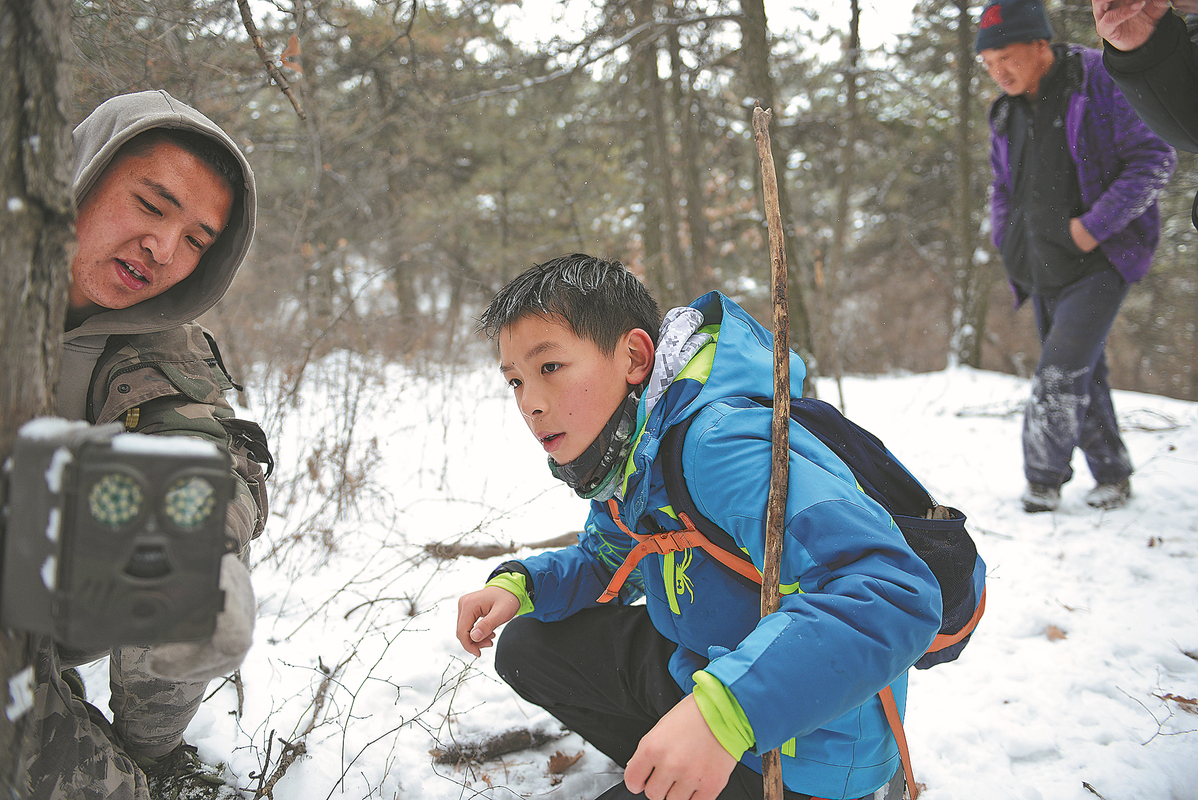Teens promote sustainability at COP29 event






During an event themed "Vulnerable Cities under Climate Impact" on the sidelines of COP29, a pair of Chinese twin brothers delivered a speech via video in which they called on youth to contribute more to efforts to combat climate change.
Li Bingchen and Li Bingheng, also known by their English names Arthur and Carter, respectively, discussed Chinese youth's concerns about climate change at COP28 last year.
At this year's conference, formally known as the 29th session of the Conference of the Parties to the United Nations Framework Convention on Climate Change, the brothers from Shenzhen, Guangdong province, detailed efforts they had made in the past year to encourage their peers to take action on climate issues, emphasizing how small steps can result in massive progress.
COP29 kicked off on Nov 11 in Baku, Azerbaijan, and will end on Friday.
The side event the brothers spoke at highlighted the challenges facing developing cities and brought together young leaders, UNICEF representatives, global climate education organizations and sustainable business leaders.
The discussion centered on how young people's perspectives and innovative approaches can strengthen climate resilience in vulnerable cities.
With humor and creativity, the 13-year-olds talked about their efforts to raise climate awareness among their peers. Last year, they began conducting climate awareness surveys at their school and later presented their findings at COP28, where they pledged to help their classmates become some of the most climate-conscious youths in Shenzhen.
In their speech this year, they reflected on their journey to fulfill that promise — their thoughts, efforts, challenges and successes.
They acknowledged the difficulties they faced.
"Switching schools meant we had to rebuild our network," Bingchen said. "A few of our invitations to the survey went unanswered, and some events were canceled due to scheduling conflicts, so we had to reschedule."
Despite these setbacks, they learned invaluable lessons.
"We learned how to break down complex goals into specific tasks and find solutions to achieve them," Bingheng said.
Over the past year, the brothers have organized various activities, including inviting a COP28 expert to speak with their classmates about climate issues and organizing a field trip to a zero-carbon community in Shenzhen.
By engaging in hands-on activities, they were able to help their peers better understand how carbon neutrality and sustainability are key to everyday life. They also created fun climate-themed quizzes to keep classmates engaged.
As they wrapped up their presentation, the twins explained their plans to improve their survey response rate by collecting feedback, and they hope to share their findings at COP30 next year.
In another event held on the sidelines of COP29, Gao Shiqing, a 15-year-old student at Keystone Academy in Beijing, talked about the years he has devoted to the protection of the North China leopard.
A species native to Beijing, it fled the city due to habitat destruction in the 1990s, partly driven by climate change.
Shiqing began working as a volunteer to protect the species in 2016. That year, the Chinese Felid Conservation Alliance, a nonprofit organization, initiated a program to assess the biodiversity of mountainous areas in North China and evaluate the potential for reintroducing the animal to the Chinese capital.
One of the teen's key tasks was to conduct fieldwork for the alliance, and he devoted much of his free time to that work after school.
Navigating rugged terrain and enduring physical challenges, Shiqing and other volunteers aimed to ensure that the region's ecosystem, including its food chain and ecological corridors, could support the natural return of the leopards, he noted.
Back then, the closest known habitat of the big cat was in Heshun county, Shanxi province, about 400 kilometers away from Beijing.
Shiqing's consistent engagement has seen positive progress. The shy creature was first spotted in a location 300 km from Beijing in 2020, and then last year, it was seen in Baoding, which is only about 200 km from the capital, he said during his speech.
Despite these promising signs, no leopards have been found in the mountains surrounding Beijing yet, but his dedicated observation in two points near the capital with the help of infrared cameras has indicated consistent ecological improvement.
Shiqing said he has spotted quite a few varieties of wild animals, including pheasants, badgers and wild boars.
"Some animals strut solo in front of the infrared camera, others crowd together in a chaotic jumble, and some move with disciplined precision, like an army," he said.
The sightings are evidence that the ecological situation near the capital is improving, the teen said.
"When will the North China leopard return to Beijing? No one knows that for sure. But that's no longer the most crucial question," he said.
"What is more important is that the ecological corridors of North China are being restored, and a societal consensus embracing the coexistence with wildlife is emerging."
Contact the writers at [email protected]
- Teens promote sustainability at COP29 event
- Ten photos from across China: Nov 15 - 21
- China's defense minister stresses regional unity at ASEAN defense meeting
- Brazilian student loves living in Macao
- House collapse in Guangxi injures three, traps one
- Global vocational education league inaugurated at Tianjin conference
































